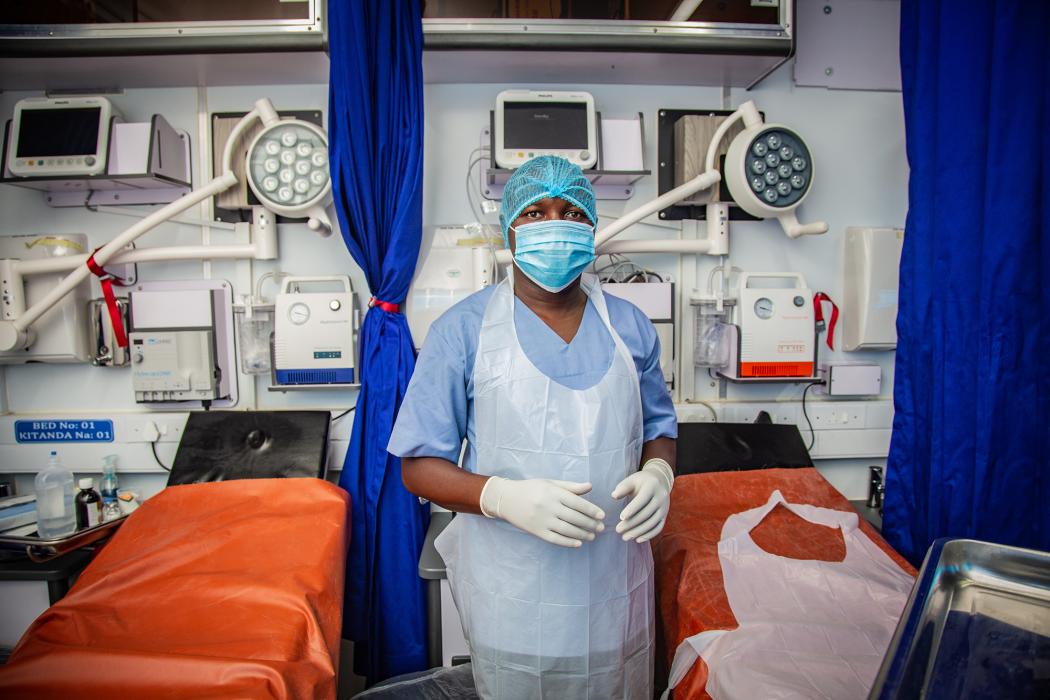What Does It Take to Keep HIV Services Available in Tanzania during COVID-19?

Lucy Mphuru and her team have been providing HIV services to hundreds of thousands of clients in Tanzania for 14 years. But when COVID-19 hit the country in 2020, the pandemic threatened to halt these services.
So Lucy and her team pivoted quickly.
They developed their own creative new approaches to make sure their clients could still access high-quality health care while ensuring the safety of frontline health workers, staff, and the clients they served—and they got results.
In fact, they achieved 117% of the Tohara Plus project’s target in 2020, providing over 186,000 adolescent and adult men in Tanzania’s northern regions of Mara, Mwanza, Shinyanga, and Simiyu with voluntary medical male circumcision (VMMC) services, which lower men’s risk of acquiring HIV through heterosexual sex by around 60%.Between meetings and facility visits, Mphuru found a sliver of time to sit down with us to talk about how they did it.
Your team has seen great results in HIV prevention despite COVID-19. How did you do it?
When COVID-19 first started in March 2020, IntraHealth suspended all Tohara Plus VMMC outreach campaigns and community activities that attract big gatherings. So, with our project partners, we quickly adapted.
We focused on 29 static sites and created 42 satellite static sites in more remote locations using interactive geospatial mapping and having conversations with communities. This allowed us to prioritize the areas with high numbers of uncircumcised men and bring services closer to potential clients. We extended daily working hours and included weekend hours so clients had easier access. And we integrated COVID-19 awareness and prevention measures into routine VMMC services like facemasks, handwashing stations, and pre-booked clients and scheduled time slots for adequately spaced appointments to avoid facility congestion.
We also relied heavily on “no contact” tools such as mobile phones and apps to send SMS messages, provide toll-free hotline calls, collect data, and facilitate communication between volunteer community agents, clients, and facilities.
Another really important tool for us was our mobile clinic vans, which we started using in late 2020. They allow us to take services directly to clients, rather than the other way around. They are fully equipped with all the supplies and equipment needed to provide VMMC services at any time and location. We take them to areas with high numbers of potential clients, such as along highways to target long safari truck drivers, in mining places to target miners, along the Lake Victoria Islands to target fisherfolks, and in hard-to-reach areas.
READ: Four Ways We’re Adapting HIV Services during COVID-19 in Tanzania
